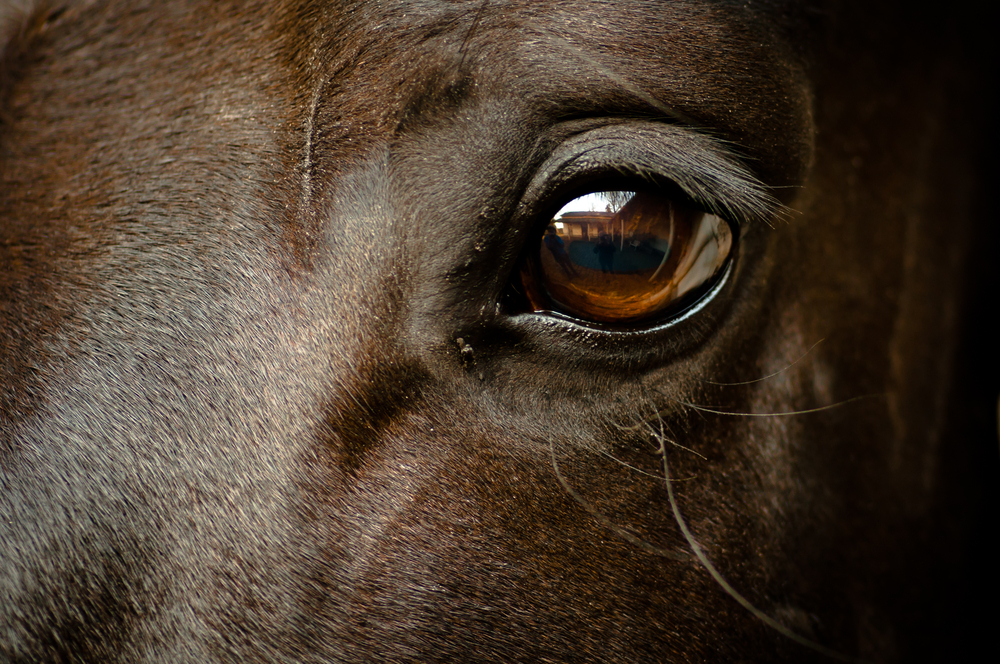Tuesdays with Tony
The horse world is full of some crazy myths, legends, and sketchy ideas. My Docs experience them every day, and I hear my fair share of them during conversations at the clinic. I know horse people like tradition, and also The Google, but both of these are more likely to let you down than help you in a crisis. This week, let’s talk about some common myths, legends, and sketchy ideas. If you don’t want a full dose of my profound wisdom, I’ll put the moral of the story here: You should check with my Docs before you do anything.
Vaccines
My horse doesn’t leave the property, so no vaccines are necessary.
There are plenty of things that reside on your property that can be 1. Vaccinated for and 2. Can kill your horse. The most common one of these is Tetanus. Horses love, and I do mean love, to get themselves hurt. Each one of those scrapes, cuts, and punctures is an opportunity for tetanus (which lives in the dirt) to go forth and multiply. Add to that mosquitos, as encephalitis delivery mechanisms, and you have several very good reasons to vaccinate, even if your horse never leaves the property.
Rabies, and particularly rabid animals, ignore fences, as it flies in a bat, or arrives via a raccoon, fox, skunk, or any other mammal. Testing for rabies is difficult and can only be done following death. There is no treatment for animals showing signs of rabies. Sadly, euthanasia is the only answer. For vaccinated animals who have been exposed, a rabies vaccine is needed within 7 days. This thing is scary! Want to use the Google for something? Google human Rabies cases, and prepare to be scared.
Always, always, always vaccinate your horse for the basics, even if they never leave your property! The basics are: Eastern and Western Encephalitis, West Nile Virus, Tetanus, and Rabies.
Colics
If a horse is colicking, you should walk them, and if they roll, they can twist their intestines.
There aren’t enough eyeroll emojis for me to place here to cover the level of “nope” for this one. If you, dear human, are colicky, what do you most want to do? Lay in bed in the fetal position and feel incredibly sorry for yourself? Maybe lay in that position on the bathroom floor? You most definitely do NOT want to go for a nice long walk with someone pulling you along by the head.
Please, please, please allow your horses to lay down and feel miserable! All walking does is use up precious energy for a horse who is already colicky. I know you humans feel the need to do something, and it’s hard to let your horse just lay there. Find a safe place to put your horse so they can roll if they feel the need. Call my Docs. Fill the time you would be watching them with making sure you have your horse insurance paperwork in place, making sure your trailer and vehicle are ready to go if needed, and come up with a plan that works for you in case this is a bad colic. Bad colics require a financial plan. Use this time to run through scenarios. Trust me, it’s way easier to have an answer ready when my Docs ask, “Is surgery an option?”

And about that twisting gut thing: It doesn’t work that way. I know it seems like it should, but in the wise words usually attributed to Dr. Neal DeGrasse Tyson, People don’t think the universe be like it is, but it do. I feel these words could be changed to, People don’t think horses be like they are, but they do. Horses roll because they have twisted their large colon and it’s painful. The twist occurs due to an impaction with a buildup of gas behind it, and the contraction of the intestine trying to move the impaction. So, the rolling doesn’t cause the twist, the rolling is a result of the twist. Make sense?
EPM, Ulcers, Kissing Spines, Lyme Disease
My horse has *insert disease* because I Googled it and the symptoms match. This one gets two myths, legends, or sketchy ideas. Also, I found this supplement on the internet that says it will fix *insert disease* and it has a lot of likes and shares so it must be good.
These, and many other diseases, are real. However, more often than not, they aren’t what’s wrong with the horse. The more common things like bad feet, arthritis, or tendinitis are causing the problem. The other problem with many of these diseases is actually diagnosing them. Let’s take EPM for example.
There are several blood tests available. None are particularly good at telling us if a horse has EPM. They can indicate that it’s unlikely a horse has EPM, but not the other way around. If they are positive, you may as well flip a coin. That horse may have EPM, or it may have been exposed to it, and if you live anywhere in most of the United States, chances are good your horse has been exposed to it.
To actually diagnose EPM, you need some of the fluid around the spine. That is the only definitive way to know. Lyme disease is even harder! The worst version of Lyme disease is very often negative to every test available on a living animal!! This uncertainty causes the very worst in humans to rear their ugly heads: The Snake Oil Salesman.
I’m going to help out here because I’m such a generous cat: if a “treatment” is not recommended by your veterinarian, it’s because it doesn’t work. Even worse, if it is widely advertised on the Faceplace and has tons of comments, but your veterinarian rolls their eyes when you mention it, it’s because this product will only take your money, and not help your horse. I promise you, my Docs want your horse better, and they want to do it in the most economical way they can. Horses don’t always go in for that plan, but my Docs try their absolute hardest.

Wounds
This *insert product name* is the absolute best for wounds. Look at this picture of the healed wound I found on the internet!
This one is short and sweet. For all the effort horses put into hurting themselves, they really, really want to heal. Most of the time it’s a matter of staying out of the way of the healing process, not putting some goop in the middle of it. Ten minutes daily with a hose, and good bandaging are the keys to wound healing. Sure, my Docs will add some stuff to really dirty or nasty wounds, and they use things like Silver Sulfadiazene, or Manuka Honey to help wounds heal faster, but the cornerstone of wound care is water and bandaging.
A cat could go on and on about all the crazy ideas horse people have, but I won’t. I’ll go back to my sage advice at the beginning of this week’s blog: If your horse has something wrong, talk with my Docs. They will help figure out what’s really going on, and find the best treatment possible. And it will probably be a lot cheaper than that other stuff.
Until next week,
~Tony
P.S. If you want more, the humans have a podcast on this very topic, with the same name I used for this blog. I know, I was a bit lazy, but come on, I’m a cat. Anyway, you can find it over on the Podcast Page of my website. With over 100 episodes now, you’ll likely find some other good stuff to listen to. It’s a great free resource, and it was all my idea, of course. You’re welcome.
Tuesdays with Tony is the official blog of Tony the Clinic Cat at Springhill Equine Veterinary Clinic in Newberry, Florida. If you liked this blog, please subscribe below, and share it with your friends on social media! For more information, please call us at (352) 472-1620, visit our website at SpringhillEquine.com, or follow us on Facebook!
[jetpack_subscription_form title="Subscribe to Whinny's Wisdoms"]

